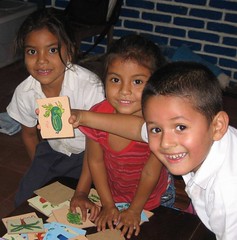Hola readers,
The debate on food security seems to be shifting from undernutrition to malnutrition or, in other words, from quantity to quality. The developing world, urbanizing at a rapid stage, is experiencing a move from diseases resulting from lack of food to diseases resulting from a poor diet balance. As food in the cities tend to be more accessible, diabetes and cardiovascular diseases are becoming very prevalent in emerging economies like Mexico and India. Both, the change in the diet (more meat, sugars, and oils) and the change in life styles (less walking more sitting) are causing this health care crisis. However, the international development community must not forget about the people who are still living on conditions of starvation and severe food insecurity.
As clearly discussed on the book “The Elusive Quest for Growth” by William Easterly, development practitioners keep coming out with panaceas in attempting to solve world’s problems. Ranging from industrialization and education to production and more recently governance, each “golden bullet” takes away resources of other programs. For instance, the World Bank’s relatively new emphasis on governance and institutional reform has displaced resource from still vital agricultural projects.
Although comprehensive and holistic approaches are becoming more popular in international development, the panacea approach still prevails, undermining the sustainability and continuity of the development process (which is generational on its nature). This is not to say that programs proven to be unsuccessful should remain funded. Rather programs that were effective must not be replaced for newer and trendier approaches to development.
All this to say that, although diet quality will definitely present a new challenge to developing countries, there is still a lot of work needed for those that are not getting enough on their tables. In this point, Gordon Conway, world renowned agricultural ecologist and one of the first one to develop the concept of sustainable agriculture, suggest what he calls the “doubly green revolution”; a “green revolution” with its increases in productivity and efficiency with an additional emphasis on environmental sustainability and participatory approaches.
In a couple hours I’ll be attending a presentation of his work at IFPRI from which I’ll be posting some of his remarks in this blog. Yet, from what I’ve read so far, his work needs support, not only because we still have a lot of hungry people in this world, but also because we must give continuity to the programs that worked.
His book “The Doubly Green Revolution: Food for All in the Twenty-First Century”
His paper “The Paradoxes of Integrated Development”
Quote "To realize lasting peace and sustainable development in human society, members of the international community have to cooperate with one another fully and make concerted efforts" Wu Bangguo
to tackle

